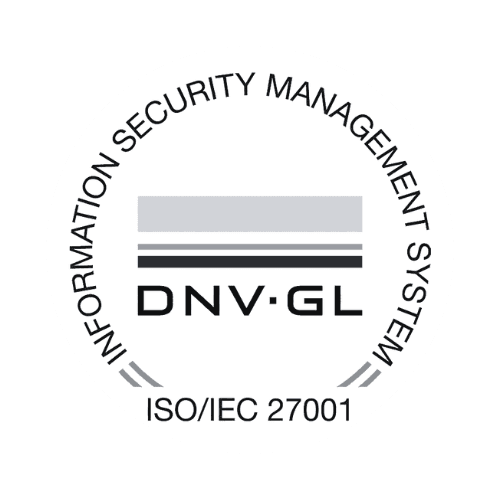Nichts verpassen & anmelden:
Written by AI
SaaS and Data Protection: Ensuring Compliance with the GDPR
The General Data Protection Regulation (GDPR) has changed the game for companies, especially those offering software-as-a-service (SaaS). Compliance with the GDPR is of utmost importance to ensure the privacy and security of users' personal data. In this article, we will take an in-depth look at the requirements of the GDPR and analyze the challenges faced by SaaS companies. We will also examine strategies to ensure GDPR compliance in SaaS environments and explain the role of the data protection officer in such companies. Finally, we will discuss the importance of regularly reviewing and updating data protection practices.
Understanding the GDPR and Its Requirements
To comply with the GDPR, companies must first understand what this regulation is and what requirements it imposes. The GDPR is a law that governs the protection of personal data within the European Union. It strengthens individuals' rights regarding their personal data and establishes stricter rules for the processing of such data.
What is the GDPR?
The General Data Protection Regulation (GDPR) is a legal framework that came into effect on May 25, 2018, governing the protection of personal data within the European Union. It aims to strengthen the privacy and data protection of EU citizens and harmonize the processing of personal data.
Key Requirements of the GDPR
The GDPR contains a number of requirements that companies must meet in order to comply with data protection regulations. These include the creation of data processing agreements, conducting data protection impact assessments, ensuring the security of personal data, and considering data protection from the outset through design and default settings.
The GDPR also stipulates that companies must appoint a data protection officer if they process personal data on a large scale. These data protection officers are responsible for monitoring compliance with the GDPR, conducting training for employees, and acting as a point of contact for data protection issues.
In addition, companies must ensure that they obtain consent from data subjects for the processing of their data. Consent must be voluntary, specific, informed, and unambiguous. Companies must also ensure that data is used only for the specified purposes and not retained longer than necessary.
SaaS and the Challenges of Data Protection
Software-as-a-Service (SaaS) has established itself as a popular model for companies to utilize software solutions without hosting or maintaining them themselves. SaaS offers many benefits but also presents challenges in the realm of data protection.
What is SaaS?
SaaS is a method of delivering software applications over the internet. Instead of installing and operating software locally on their devices, users can access SaaS applications through their web browser or a dedicated application. This means that the data is typically stored on the SaaS provider's servers.
Data Protection Issues in SaaS Environments
As personal data is frequently processed and stored in SaaS environments, data protection issues can arise. It is important to ensure that the data is adequately protected to meet GDPR requirements. This includes ensuring secure data transmission, encrypting data, and implementing strict access controls and security measures.
Another important aspect of data protection in SaaS environments is data backup and recovery. Companies using SaaS solutions must ensure that their data is regularly backed up and protected against data loss. This requires careful planning and implementation of backup strategies to ensure that data can be quickly restored in case of a failure or data corruption.
Strategies for GDPR Compliance in SaaS
To comply with the GDPR in SaaS environments, companies must implement various strategies. One approach is to ensure data protection by design and default settings.
Data Protection by Design and Default Settings
Data protection by design means that data protection principles are integrated into the development of SaaS applications from the outset. It should be ensured that data minimization is observed by processing only the data required for the specific purpose. Additionally, privacy-friendly settings should be used by default to protect users' privacy.
Data Processing Agreements and the GDPR
SaaS providers must also ensure that they enter into data processing agreements with their customers. These agreements govern the processing of personal data on behalf of the customer and establish the rights and obligations of the parties involved. It is important to ensure that these agreements meet the requirements of the GDPR.
Implementation of Data Protection Impact Assessments
Another important strategy for compliance with the GDPR in SaaS is the implementation of Data Protection Impact Assessments (DPIAs). DPIAs are a tool to assess the potential impacts of data processing activities on the protection of personal data. SaaS providers should regularly conduct DPIAs to ensure that data protection risks are identified and minimized.
Security Measures and Regular Training
In addition to the strategies mentioned above, it is crucial for SaaS providers to implement appropriate security measures to ensure the confidentiality, integrity, and availability of the processed data. These measures include encryption of data, access controls, and regular security audits. Furthermore, employees should be regularly trained in data protection and security issues to raise awareness of handling sensitive data.
Role of the Data Protection Officer in SaaS Companies
The GDPR stipulates that certain companies must appoint a data protection officer. This person is responsible for overseeing compliance with data protection regulations.
Appointing a data protection officer in a company is not only a legal obligation but also an important step to protect the sensitive data of customers and employees. Data protection officers must possess a solid understanding of data protection and IT security in order to ensure compliance with legal requirements.
Tasks and Responsibilities of the Data Protection Officer
The data protection officer is responsible for monitoring and ensuring compliance with the GDPR in a company. This includes conducting data protection impact assessments, training employees on data protection, monitoring data breaches, and collaborating with supervisory authorities.
In addition to these tasks, the data protection officer plays an important role in developing and implementing data protection policies and procedures. Through regular reviews and audits, the data protection officer helps identify and minimize data protection risks to ensure data security.
Data Protection Officer and GDPR Compliance
The role of the data protection officer is crucial for ensuring GDPR compliance in SaaS companies. They should work closely with management and relevant departments to ensure that all data protection requirements are met.
An effective data protection officer possesses strong communication skills to promote data protection practices and policies within the company. Moreover, it is important that the data protection officer has a deep understanding of the company’s business processes and requirements to optimally integrate data protection measures.
Reviewing and Updating Data Protection Practices
Ensuring GDPR compliance is not a one-time task. Companies must regularly review and update their data protection practices to ensure they meet current requirements.
Regular Data Protection Audits
It is advisable to conduct regular data protection audits to identify and address vulnerabilities in data protection practices. These audits should include a review of data protection policies, data processing agreements, security measures, and other relevant aspects.
Updating Data Protection Policies and Procedures
Data protection policies and procedures should be regularly reviewed and updated to ensure they meet the current requirements of the GDPR. Any changes should be communicated to users to promote transparency and trust.
By complying with the GDPR, SaaS companies can gain the trust of their customers and strengthen their competitiveness in the market. It is important to understand the requirements of the GDPR, address the challenges of data protection in SaaS environments, implement suitable strategies for GDPR compliance, consider the role of the data protection officer, and regularly review and update data protection practices. Through these measures, SaaS companies can ensure that they safeguard the privacy and security of their users' personal data.
The GDPR has a significant impact on how companies process and protect personal data. It is important to understand that the GDPR applies not only to companies within the European Union but also to companies outside the EU that process personal data of EU citizens.
To meet the GDPR requirements, companies must take a number of measures. These include appointing a data protection officer, conducting data protection impact assessments, implementing appropriate technical and organizational measures to protect personal data, and complying with the principles of data minimization and purpose limitation.








